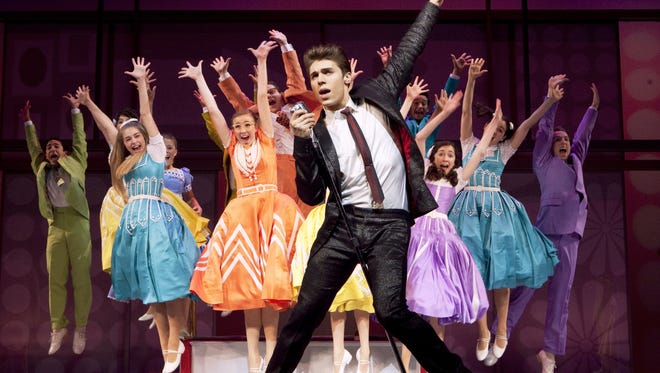
‘The Cemetery Club’ // Nash Theatre
‘The Cemetery Club’ was intimate.
New Farm Nash Theatre presents a romantic comedy originally written in 1990 by Ivan Menchell. ‘The Cemetery Club’ follows three Jewish American widows who meet once a month for tea and a trip to their husbands’ graves. Friction develops between the three as they all find they have differing attitudes toward moving on, especially when one of the women, Ida, begins a new relationship.
‘The Cemetery Club’ is a simple script that is written in such a way that it can be performed on a shoestring budget, with minimal sets, costuming and props, and a small cast of five. Its story explores themes of grief, death, love and friendship, with a grounded tone that examines the tragedy and comedy of growing older. The central characters are Ida (Claire Marchesi), the protagonist who is growing doubtful about how healthy the monthly trips are, Lucille (Linda Morgan) who puts up a front of lavish spending and serial dating, seemingly uninterested in making a fuss over her late husband, and Doris (Carrie O’Rourke) on the other side of the spectrum who remains heart and soul devoted to her departed Abe. Both Ida and Lucille take an interest in Sam (Matt McNeice) a butcher and widower himself, who also visits the cemetery. When Ida begins dating Sam, Doris is mistrustful of him and believes Ida to be betraying her late husband.
A show like ‘The Cemetery Club’ requires authenticity above all else. Straight out the gate the audience is greeted with some heavy Jewish New Yorker accents from Marchesi and Morgan. While these accents took some adjusting and had a couple of slips in the early moments of the play, they were largely perfect and placed the audience firmly in the setting. The accent work in this show was, in general, exceptional. O’Rourke’s Doris had a thick German accent and McNeice’s Sam was Irish. Neither slipped up to the point where I’m not entirely sure if they actually are German and Irish. Rounding off the cast was Silvana Siliato as Mildred, who appeared briefly in the second act with a memorable walk-on part and a similarly spotless American accent.
Led by director Phil Carney, the cast approached the themes of the show with a grounded and effective tone. The cast were unafraid to let moments sit, let the audience fill in the blanks of characters’ emotions and draw conclusions about who was in the wrong and who was in the right. ‘Cemetery Club’ is not a script that calls for large choices or eccentric deliveries, rather it calls for subtlety, and derives humour and drama from the kinds of interactions that one may have in their twilight years.
Carney’s direction gives a lot of credit to its actors, opting to let them keep control of the stage with few props and only one significant costume change. Carney also had a hand in most of the show’s technical aspects, designing the set and constructing it, and doing the lighting and sound for the show. Carney was aided behind the scenes by stage manager Jan Read, fellow set constructor Rob Crook, and costume consultant Sue Crook.
As a piece of realism there wasn’t much required in the way of elaborate effects or stylised lighting. There were no errors in the way of lighting although a few scene transitions left the stage in the dark for quite a while. Sound design was largely effective although there was one rather noticeable error that occurred during a sound cue that played more than once. In addition, transition music was played between scenes, and while it contributed to the atmosphere most of the time, it did at one point appear quite jarring as an upbeat crooner song was playing after a rather dramatic turning point in the show. These were the only moments that served to take me out of the piece and the otherwise engaged audience also lost focus on the scene at hand.
The show is largely set in one room, Ida’s living room, with the only difference being the scenes at the cemetery itself. These moments are depicted by closing the curtains and placing gravestones downstage. This minimalist approach allowed for some intimate moments as the audience was made to focus solely on the actors.
While ‘The Cemetery Club’ can and should be enjoyed by audiences outside of its target demographic, this is a production for and by a mature audience. The themes are about growing older and the shared experience of those who have outlived their partners. In doing so the show takes its time, and by the conclusion of the first act it may seem that not a lot has happened. But the script is not ashamed of this, and Nash Theatre isn’t either. The cast and crew relish in the small moments and are happy to take their time. As a meditation on grief and a celebration of life, the production succeeded in bringing the script to the stage and giving its audience much to ponder.
‘The Cemetery Club’ performs until Saturday, 29 July 2023 at New Farm Nash Theatre. For more information visit their website.






